A beautiful balance of soy sauce and fiery chilis combine with chicken for great flavor and an even better aroma. Bring on this mix of Indo-Chinese flavors for a comfort food dish.
By Rinku Bhattacharya
We all have iconic nostalgic dishes stashed somewhere in our operating universe, for one is the fish fry made by mother, but, like most people so are many dishes that mom never messed around with, and high on my list is also the chili chicken. The chili chicken I speak of is an Indo-Chinese classic with a beautiful aroma.
We qualify this genre of cuisine as Indo-Chinese, however, growing up we knew no other kind of Chinese food, so dishes like the chili chicken, hakka noodles, cauliflower Manchurian and dishes such as that all formed an amazing assortment of dishes that really had very Chinese sounding names and was an amazing collection of dishes that was ultimate food nirvana and still a thing that I must indulge in every time I go to India.
Now, I have to confess, as with all fusion dishes there is really no set formula, the key is to balance the umami taste of the soy sauce with fiery hot chilies.
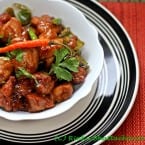
Kolkata-Style Spicy Chili Chicken
- Total Time: 45 mins
Description
A balance of soy sauce and fiery chilis combine with chicken for great flavor and aroma. Bring on this mix of Indo-Chinese flavors for a comfort food dish.
Ingredients
For the Chicken
- 11/2 pounds of boneless skinless chicken thighs
- 1 tablespoon ginger-garlic paste
- 1 teaspoon red cayenne pepper
- 1 teaspoon salt
- 3/4 cup cornstarch
- 1/4 cup water(maybe a little more if needed)
- 1/4 cup oil for frying
For the sauce
- 1 tablespoon oil
- 4 cloves of garlic, sliced
- 1/3 cup soy sauce
- 2 tablespoon vinegar
- 1/2 cup water
- 1 teaspoon cornstarch
- 1 tablespoons chili sauce (such as sriracha)
- 25 chilies, sliced lengthwise
- Extra chilies to garnish
- cilantro to garnish
Instructions
- Cut the chicken into smaller pieces and wash and dry throughly.
- Rub the chicken with the ginger-garlic paste and the red cayenne pepper and salt.
- Rub the chicken with the cornstarch and water. The objective here is to have a thin and uniform coating.
- Heat the oil, the best tool for this is a wide bottomed non-stick wok. Place all the chicken in a single layer, you may need two batches for this purpose. Cook for about 4 minutes on each side. Remove with a slotted spoon and place on paper towels.
- To prepare the sauce, heat the tablespoon of oil and add in the sliced garlic and cook for about a minute until pale golden. Add in the soy sauce, vinegar, water and the cornstarch and bring to simmer. It should be reasonably thick. Add in the chicken and the sliced chillies and toss for about 2 minutes.
- Garnish with additional chilies and cilantro and serve hot.
- Prep Time: 15 mins
- Cook Time: 30 mins
- Category: Main
- Cuisine: Indo- Chinese Fuision








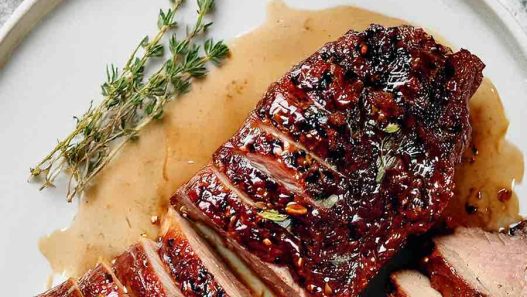

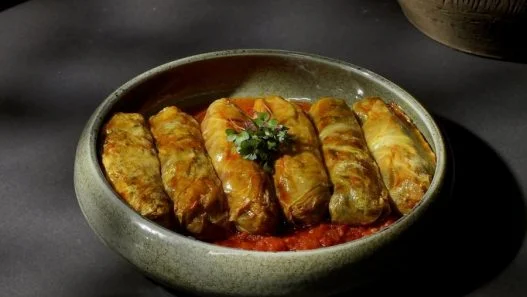
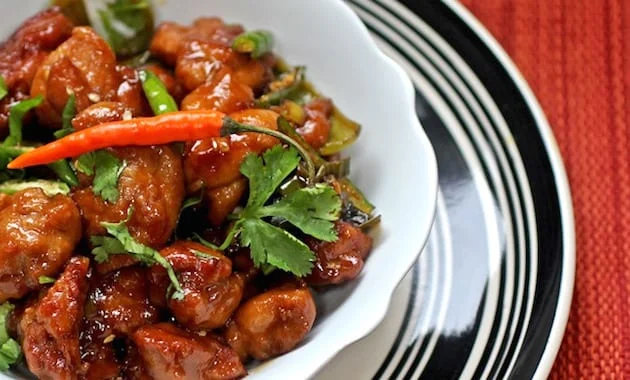
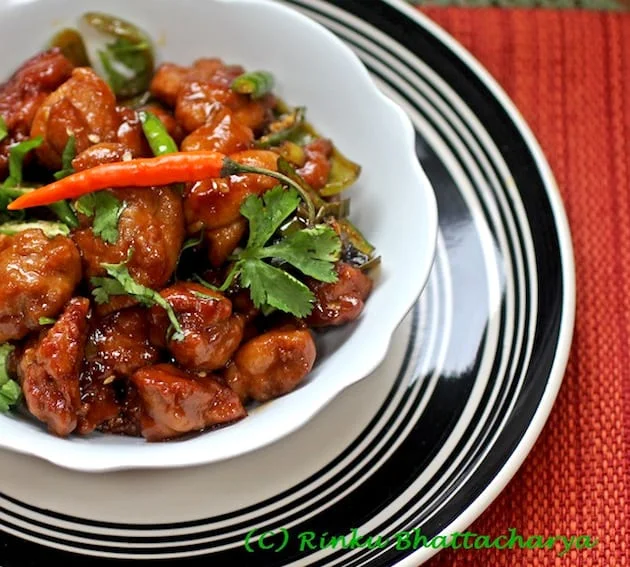
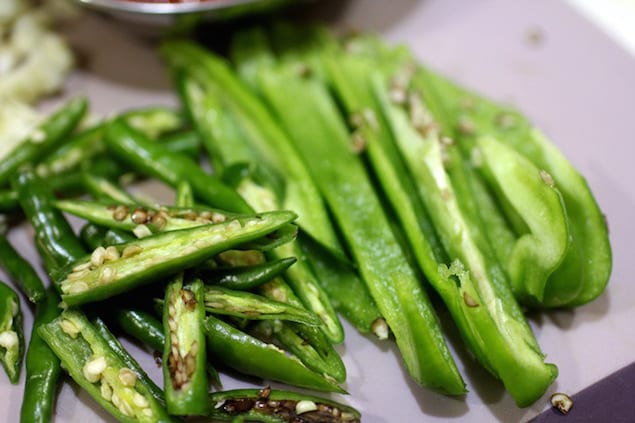
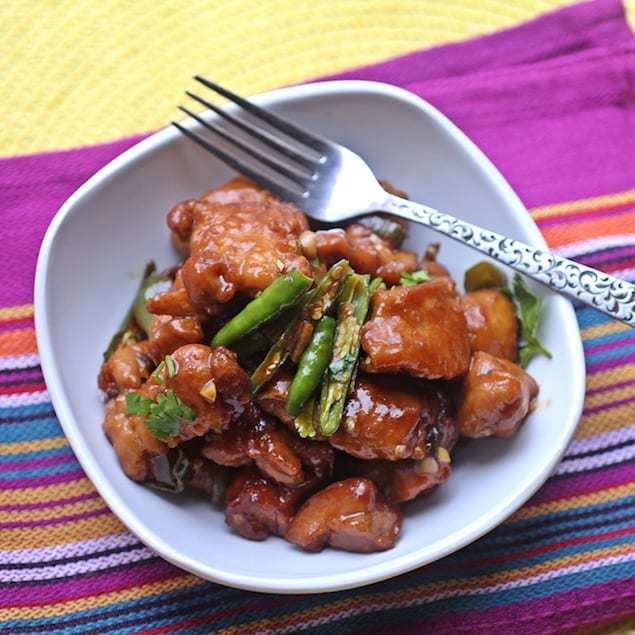
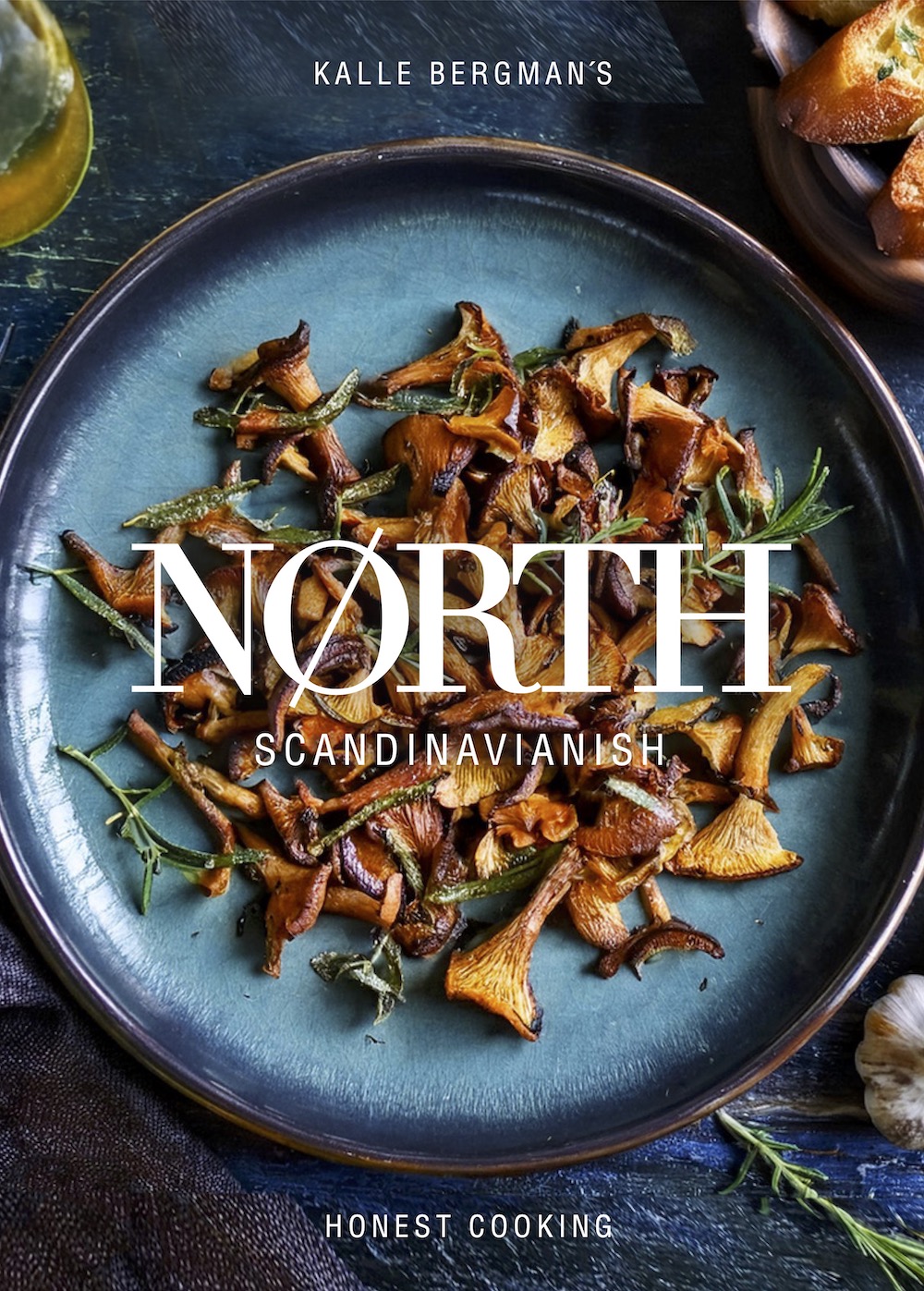
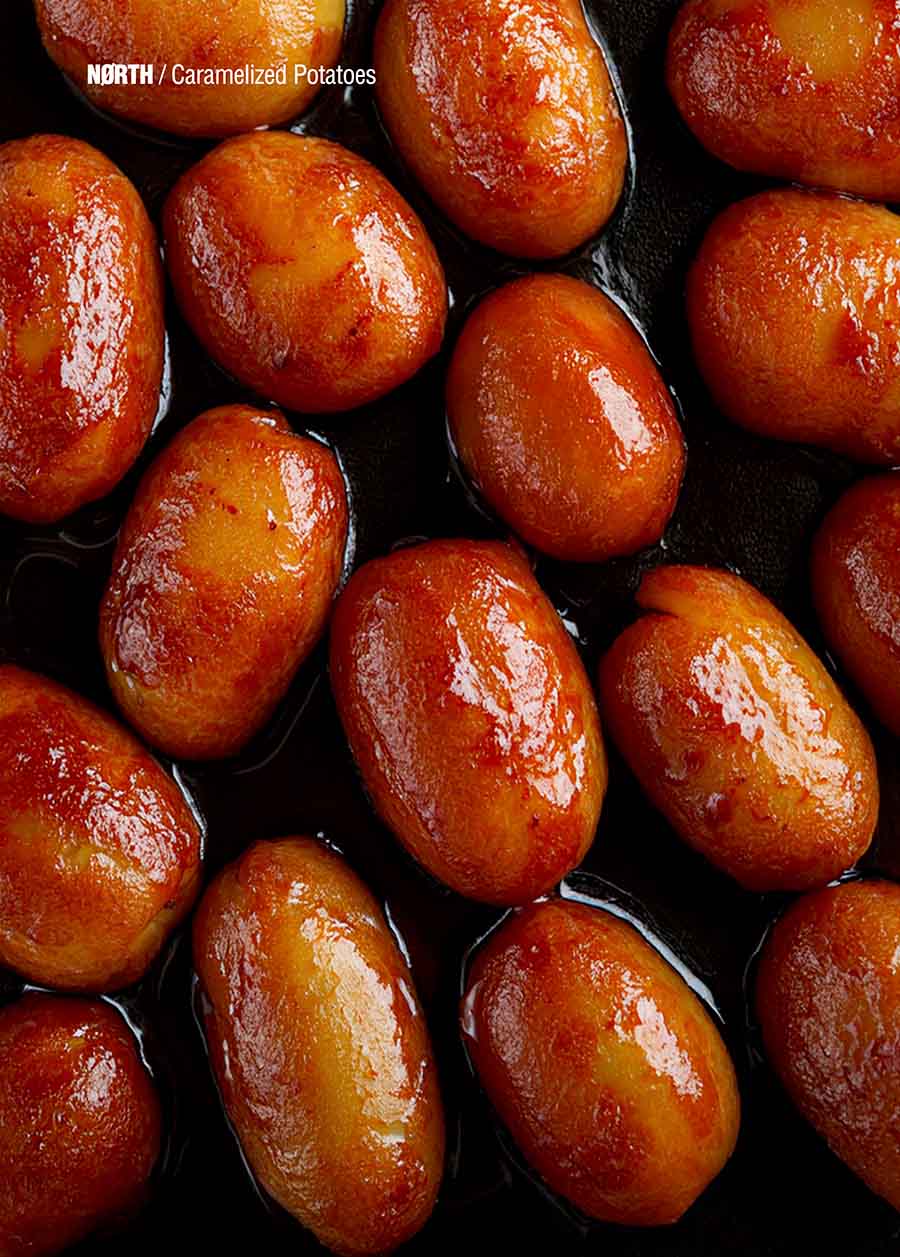
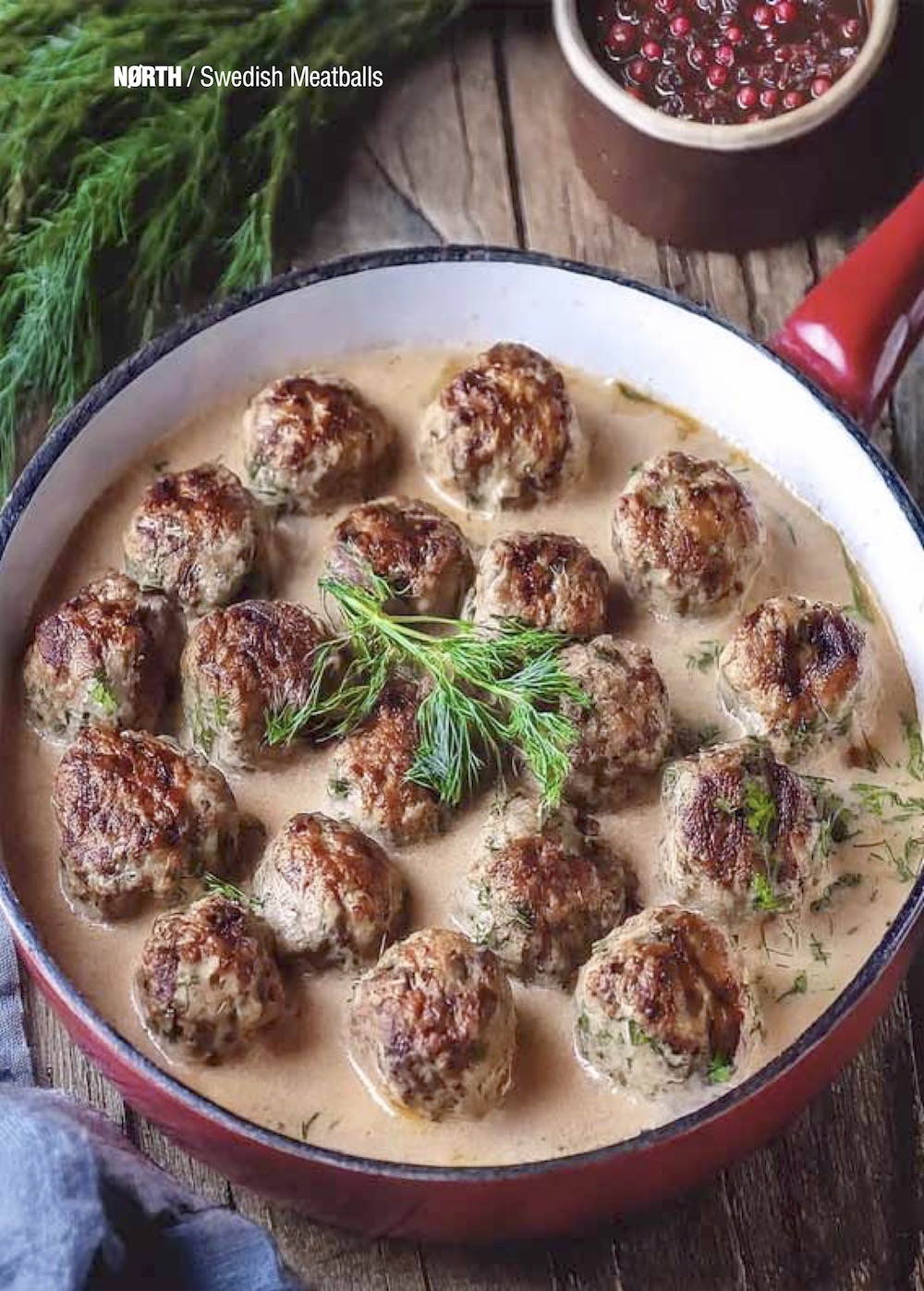
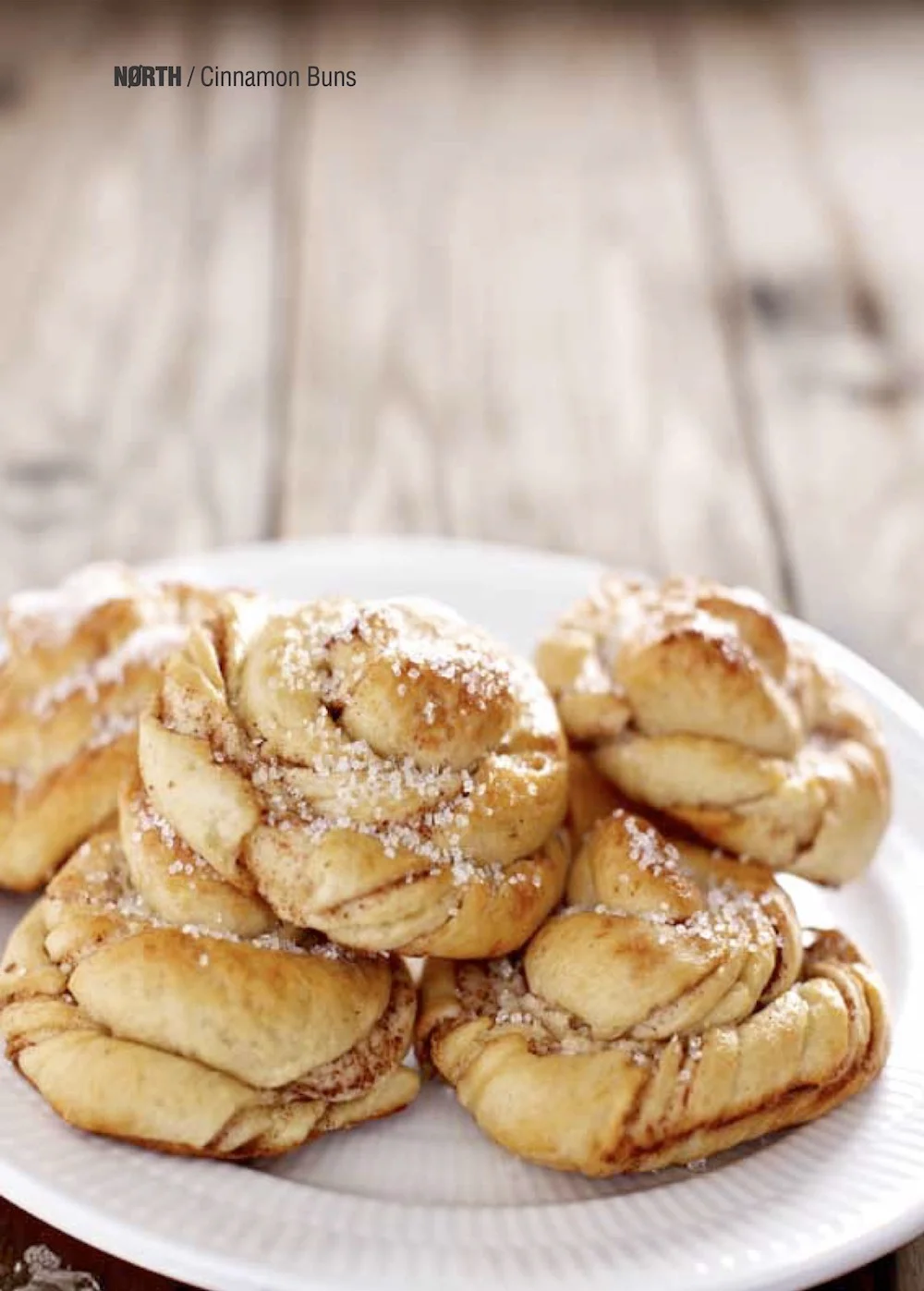


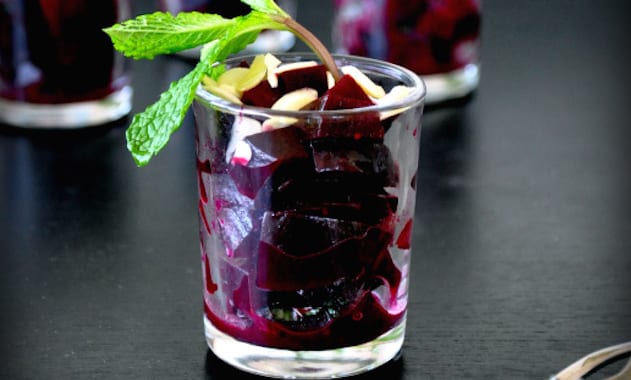
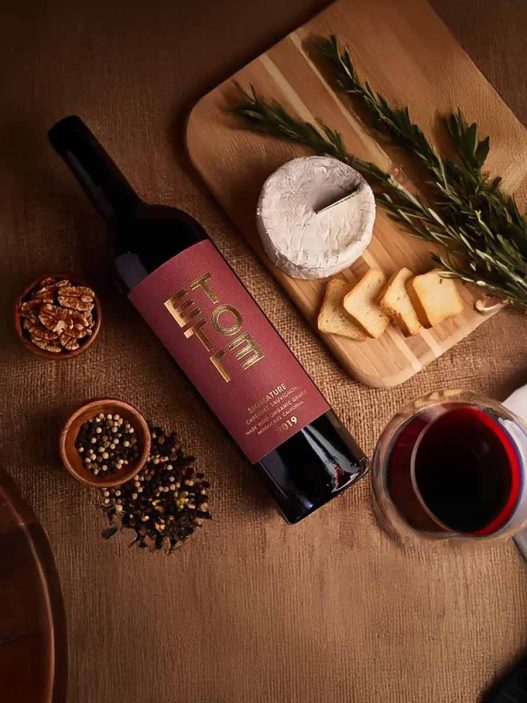
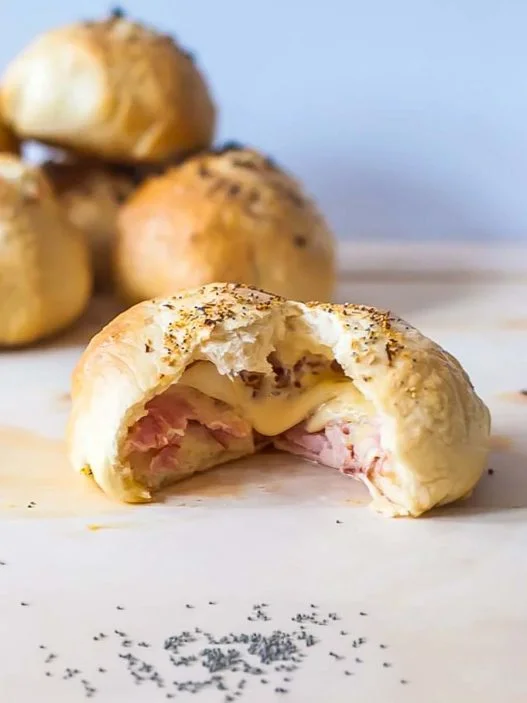
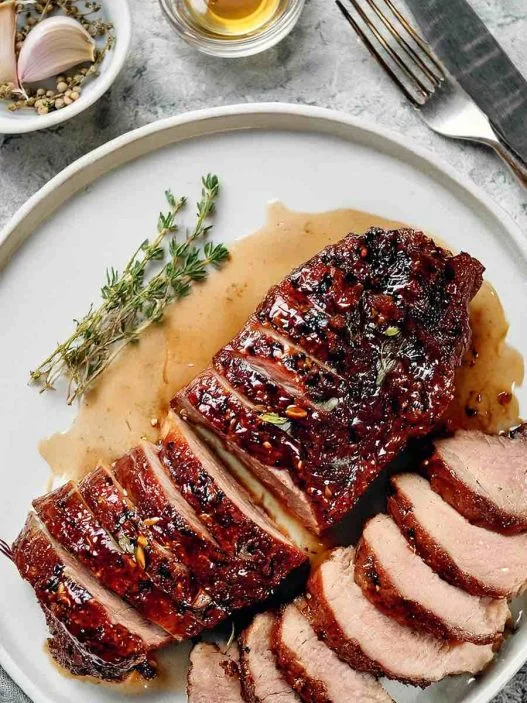
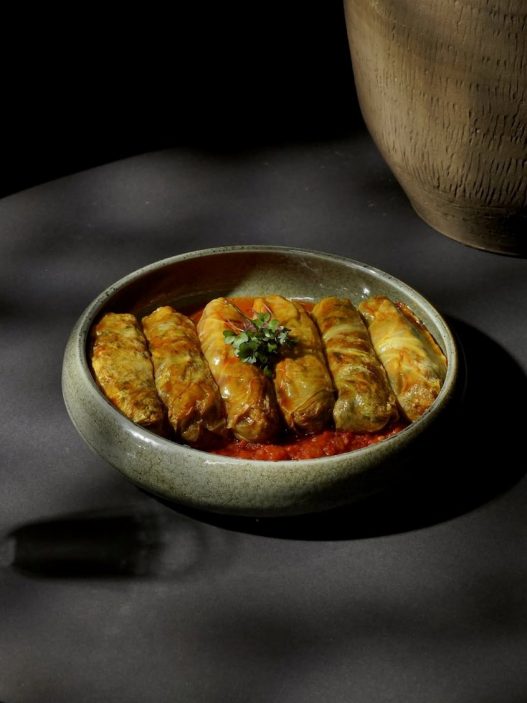
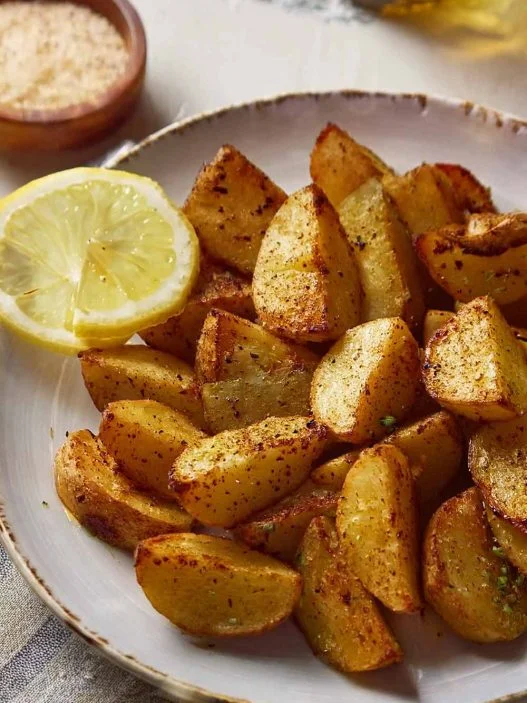
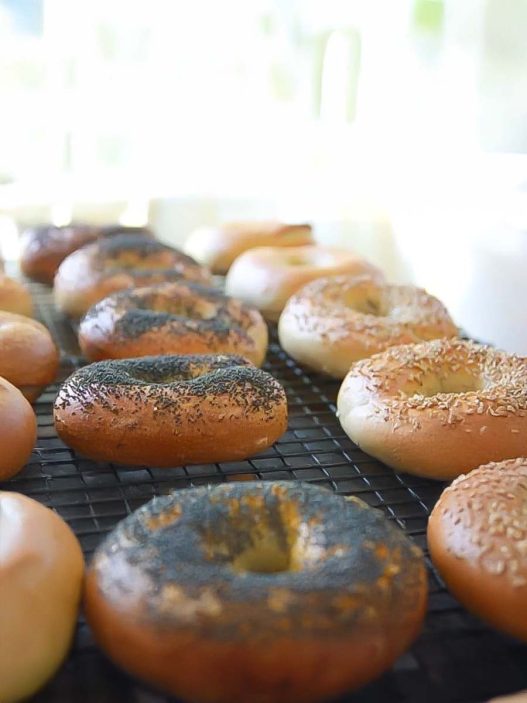
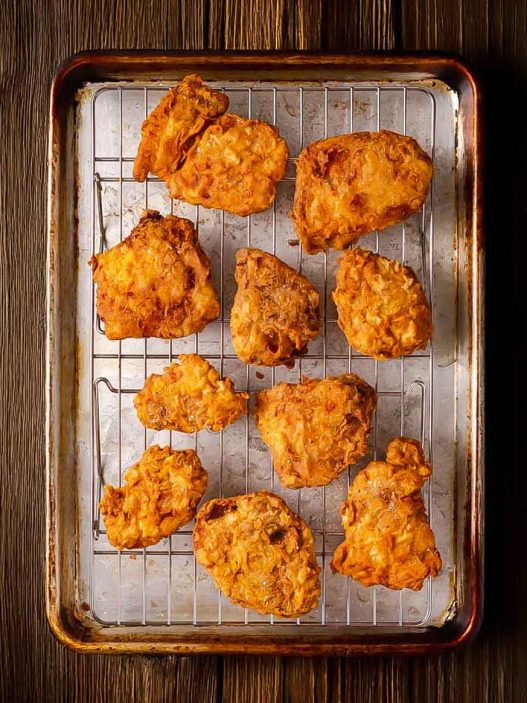
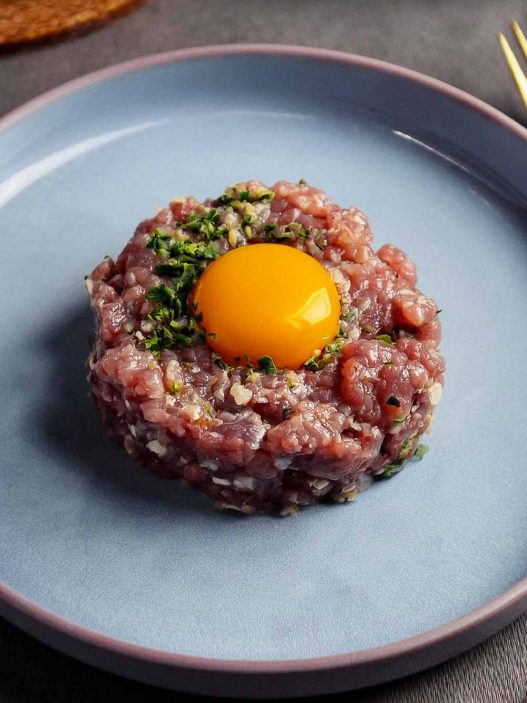
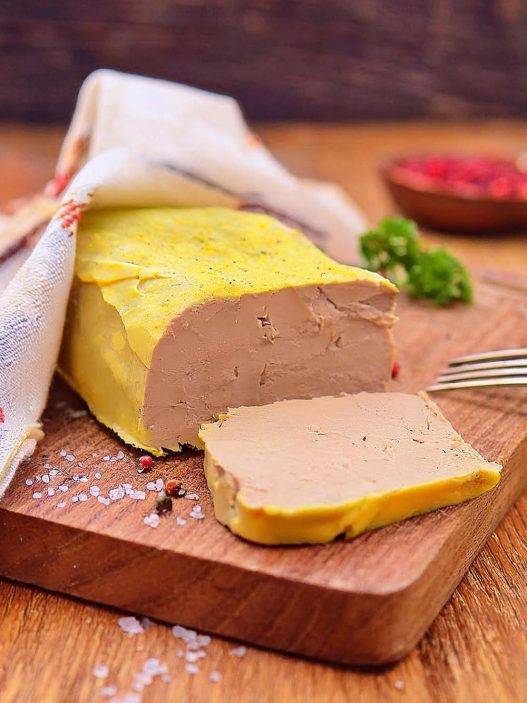
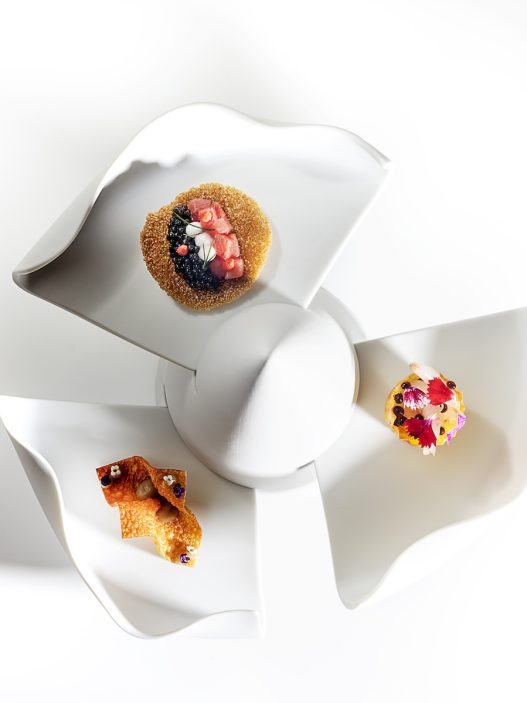
Namaskar. In the 60s and 70s, Chinese food for the middle class “bhadralok” types meant just the following restaurants, i believe: Chung Wah on Central Ave., frequented by Medical College students and Statesman journalists, Peiping on the Chowringhee end of Park St. and Waldorf toward the Camac St. end, and Jimmy’s Kitchen at the crossing of Theatre Rd. All the other little ones, How Hua, etc. were yet to be born. There might have been another near Lal Bazaar, but this and any Tangra establishment were out off bounds for family dining! It was where the “rougher” elements congregated for drinks, and where expatriated sent their drivers to bring home garlic prawn and the like!! Stories to be relished but never actually experienced, as your surname probably explains a lot!! Calcutta Club also had a decent Chinese kitchen, along the same lines, similar price points, take-outs, etc.
Also, the menu was predictable. Fried chili chicken was extremely popular and each restaurant had its slightly different style: Peiping, Waldorf, Jimmy’s Kitchen. My favorite by far was the Peiping version. Poussin sized chicken, lightly blanched in water or a “lu”, dried, cut into small pieces on the bone, in the classical chinese way, i.e. not jointed, and then fairly deep fried so that the skin is crisp and gold. Very little oil in the wok, hint of garlic, chunked red onion, chunked green chillies, seeds in, stirred on high heat, light soy sauce of good quality drizzled around the side of the wok to lightly caramelize, maybe some shaoxing wine, sugar, broth, and the dish is ready. Very piquant, clothed by a light, highly soy-sauce flavored, reasonaby oily yet perfectly balanced gravy. This was what Calcutta Chinese meant, and not the weird inventions coming out these days, even from Tangra!
I have eaten Tangra home cooking in those days too, and can speak about that at some length.
Restaurant Fried Chili Chicken differed in how much sauce was presented, how much the chili was cooked, whether it was sliced lengthwise or crosswise, whether the chicken was very lightly dusted with cornstarch before frying [Jimmy’s Kitchen] etc. In those days, many caterers, non-Chinese, ALSO began to offer this very same recipe on their menu’s, some even going so far as to offer a Bhetki Fish version for those who did not eat chicken. I have personally eaten this, and at a niyonbhongo no less, feeling a bit astounded! You may have heard of similar instances of tandoori Bheti fish being on offer, and those were quite good. Bhola Bhetki, to prevent flaking off, but quite good, still. Those were the days of Ananda OR Guin Caterers, so these facts can be ascertained. I don’t know if there are any principals still alive, from those establishments.
My interest is in retrieving the old Chinese recipes from the AUTHENTIC Calcutta Chinese restaurants, especially Peiping and Waldorf, before they are lost forever. Prawn Rolls, Waldorf, and Prawn Rolls, Peiping, are two entirely different species, and I think I can execute the former with some felicity and the typical fried rices of the Calcutta style as well. Provided we get the Calcutta Dadkhani rice, which is a converted rice created from Sitabhog or Kalojeera mini-basmati types.
Can you prevail upon your readers or contacts in Kolkata to take an interest in the project? The evolution of Chinese food, even that which calls itself Calcutta Chinese, Tangra Chinese, has no connection with that of the 60s and 70s. Mr. Wang would be the first to admit that he has spawned a monster, and perhaps he himself might know how some of the restaurant dishes USED to be cooked?
Namaskar.